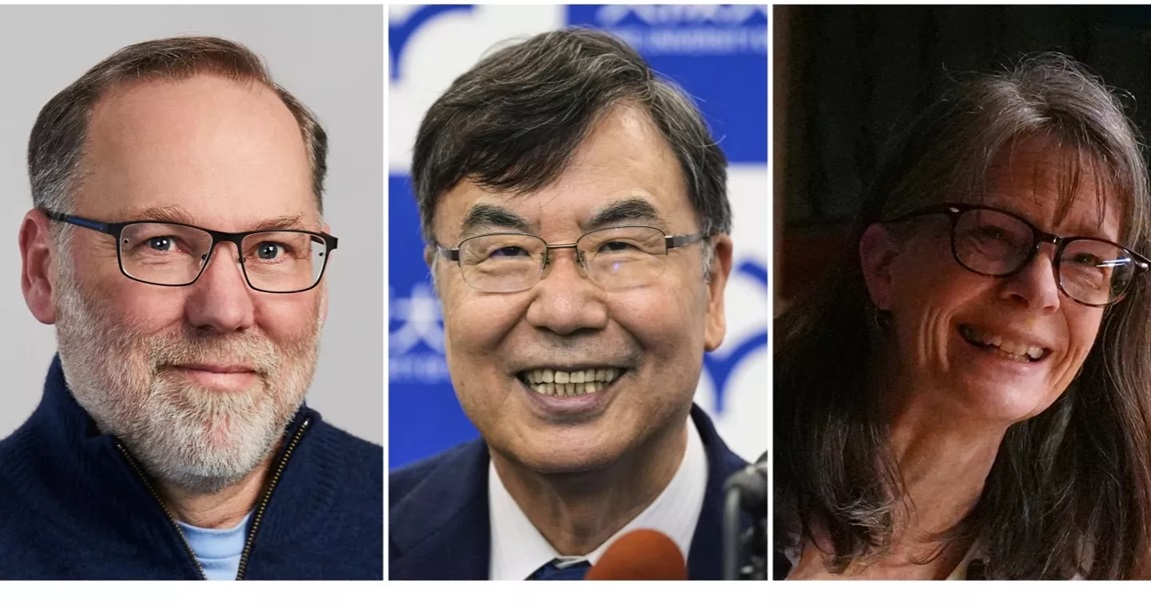Three scientists share 2025 Nobel Prize in Medicine for groundbreaking immune system discoveries


Three scientists — Mary E. Brunkow, Fred Ramsdell, and Dr. Shimon Sakaguchi — have jointly won the 2025 Nobel Prize in Physiology or Medicine for discoveries that explain how the human immune system distinguishes between harmful germs and the body’s own cells.
Their work uncovered a crucial biological mechanism known as peripheral immune tolerance, which helps prevent the immune system from attacking healthy tissues. The discovery has been hailed as a cornerstone in understanding autoimmune diseases such as Type 1 diabetes, rheumatoid arthritis, and lupus.
Brunkow and Ramsdell, both from the United States, and Sakaguchi from Japan, conducted independent but complementary research that identified the importance of regulatory T cells, or T-regs. These specialized cells act as immune system “brakes,” preventing overactive immune responses that can lead to disease.
“Their discoveries have been decisive for our understanding of how the immune system functions and why we do not all develop serious autoimmune diseases,” said Olle Kämpe, chair of the Nobel Committee.
Brunkow, 64, is a senior program manager at the Institute for Systems Biology in Seattle; Ramsdell, 64, serves as a scientific adviser at Sonoma Biotherapeutics in San Francisco; and Sakaguchi, 74, is a distinguished professor at Osaka University’s Immunology Frontier Research Center.
This year’s medicine award is the first among the 2025 Nobel announcements. The physics, chemistry, literature, peace, and economics prizes will follow in the coming days.
How the discovery unfolded
Scientists long believed that immune self-control was managed only in the thymus, where T cells are trained to detect invaders and defective ones are destroyed. However, the laureates revealed that the body has another critical safeguard operating outside the thymus to maintain immune balance.
In the mid-1990s, Sakaguchi discovered a previously unknown subset of T cells — the regulatory T cells — capable of suppressing excessive immune reactions. A few years later, Brunkow and Ramsdell identified a gene, Foxp3, that plays a key role in the function of these regulatory cells.
Their combined findings showed that defects in Foxp3 lead to severe autoimmune diseases, while proper Foxp3 activity ensures immune stability.
“It was a really small alteration in DNA that caused a massive change in how the immune system works,” Brunkow told AP.
Sakaguchi later demonstrated that Foxp3 directly controls the development of regulatory T cells, providing the missing link between genetics and immune tolerance.
Why it matters
Experts say the discovery has reshaped immunology. It has paved the way for new approaches to treating autoimmune diseases, improving organ transplant outcomes, and even enhancing cancer immunotherapies.
“Their work opened a new field of immunology,” said Karolinska Institute professor Marie Wahren-Herlenius.
Dr. Jonathan Schneck of Johns Hopkins University noted that scientists are now exploring how to boost T-reg activity to reduce reliance on broad immunosuppressive drugs, which often leave patients vulnerable to infection.
Although clinical applications are still in development, Schneck said, “This work started back in 1995, and we’re already reaping the benefits — with many more to come.”
Laureates’ reactions
Sakaguchi said he was “incredibly grateful” when informed of the award. During a later press conference — briefly interrupted by a congratulatory call from Japan’s prime minister — he called the prize “a happy surprise,” adding, “Our research aims to prevent diseases and improve human health.”
Brunkow learned of her win from an AP photographer after dismissing an earlier call from Sweden as spam. “When I told Mary she won, she said, ‘Don’t be ridiculous,’” her husband, Ross Colquhoun, recalled.
Ramsdell, who was on vacation, only found out when his wife’s phone reconnected to service. “She said, ‘You won the Nobel Prize.’ And I said, ‘No, I didn’t.’ Then I saw 200 text messages,” he told AP with disbelief.
Jeff Bluestone, CEO of Sonoma Biotherapeutics, described Ramsdell as “one of the most humble people you’ll ever meet.”
Prize details
The Nobel Prize award ceremony will take place on December 10, the anniversary of Alfred Nobel’s death. The three laureates will share prize money worth 11 million Swedish kronor (approximately USD 1.2 million).
